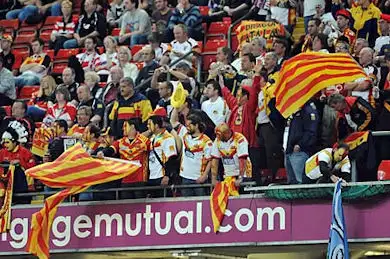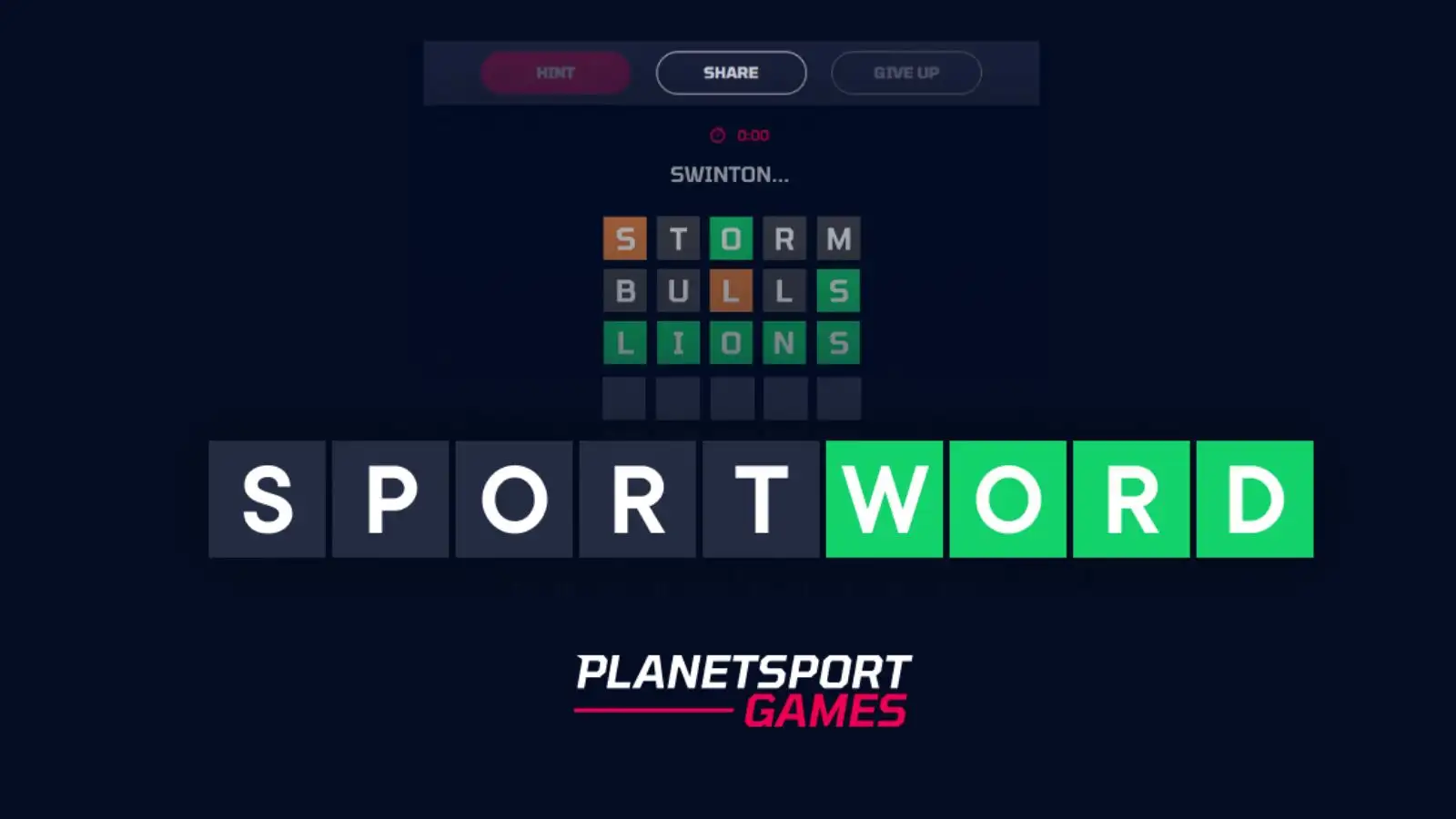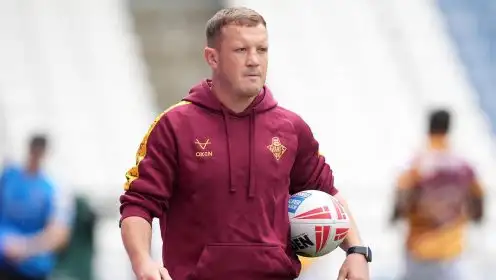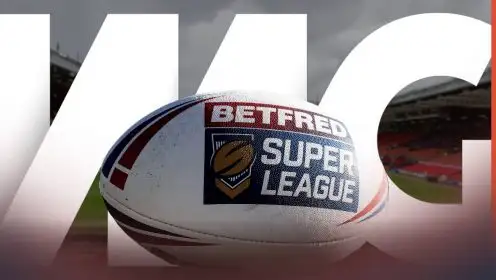Does Catalans rise highlight the need for France’s next step?

It’s the eleventh season of Catalans Dragons in Super League – and French rugby league’s development is at a crossroads.
There’s no doubting that the Dragons have added to Super League in that time, even if they have underachieved in the past few seasons.
Their most memorable moment probably came at Langtree Park, the famous Daryl Millard try in the corner that Scott Dureau converted for an incredible win after the hooter. They also reached a Challenge Cup final back in 2007.
The perfect franchise club, the Dragons are perhaps how some imagined the whole of Super League becoming when it was founded in 1996.
But the reality is that the Dragons were introduced to supposedly increase the quality of the Frrench national team, to give England (or Great Britain) a competitive test in the Northern Hemisphere to aid their own attempts at usurping Australia and New Zealand at the top of the world.
While we are seeing a sprinkling of French talent find their way to other Super League clubs, including St Helens‘ Theo Fages and Hull KR‘s John Boudebza, the French national team has gone backwards.
The Dragons rely on a large contingent of overseas stars, which now include established English players Richie Myler and Jodie Broughton, as well as highly-rated Australians such as Todd Carney, Willie Mason, Glenn Stewart and Pat Richards, and Kiwis Krisnan Inu, Louie Anderson and Justin Horo.
It’s got to the stage now where the Dragons have to protect their own interests, and they can’t be forced to carry the flag for the French national team for much longer.
Apparently there is a reluctance amongst the young French players to learn English, severely hampering their chances of remaining in the full-time rugby league environment if they are cut by the Dragons.
A number of players have made it to these shores, thanks in large to Olivier Elima, the former Wakefield and Bradford forward, who has negotiated deals for the likes of Jean-Philippe Baile and Mickael Simon.
France now needs a second Super League team.
With the re-introduction of promotion and relegation, it is not possible for a club to be fast-tracked in, ala the Dragons, which means Toulouse are now plying their trade in League One and looking to play their way up.
It’s quite ridiculous that in a division where most of the clubs are struggling to even survive, that they are forced to travel to France once a season, and that Toulouse are being subsidised to come in the other direction to largely inflict heavy defeats on their opposition.
They should go up this season, which then puts them within 23 games of the top four and a possible tilt at earning a Super League place.
Toulouse’s expected presence in the Championship might be seen as a good thing, with the potential for the Dragons to dual-register players with them, but relations are strained and that is unlikely to happen.
The head of French rugby league happens to be the chairman-owner of Toulouse, and the accusations go that he is more concerned about the development of his club than the game as a whole.
The exit of Toulouse from the French league has weakened it, and with the Dragons unlikely to ever step down from Super League, the dream of some to have a strong French league that would result in an Anglo-French competition further down the line looks very much dead in the water.
Catalans’ preference for a second Super League team is believed to be the Chevaliers Cathares select team, who they play in a pre-season friendly each year. The Cathares side is selected from players from Lezignan, Limoux and Carcassonne.
Having such a franchise set-up would enable the players to continue to play in the French Elite League, which runs through the winter anyway, for their clubs with the lure of playing in Super League to motivate them.
This would then increase the relationship between the French domestic set up and their hopefully two Super League clubs.
As it is, the RFL have seemingly gone down the Toulouse route. Toulouse played in the Championship from 2009-2011 ahead of a Super League licence application for 2012, where they were told they wouldn’t have to satisfy the on-field criteria that the likes of Widnes did.
When this arrangement was leaked, the RFL backtracked and that meant that Toulouse, who were disappointing on the field at that time, were denied a Super League place for the second time, having missed out when the Dragons joined in 2006.
Toulouse had all the infrastructure in place at that time, including investment and a TV deal, and it is to their credit that they haven’t given up.
Where it leaves French rugby league if they do succeed, who knows.
What is for sure is that it’s got to the stage now where not only the Dragons can fly the French flag in Super League if it is truly going to remain a European competition.



